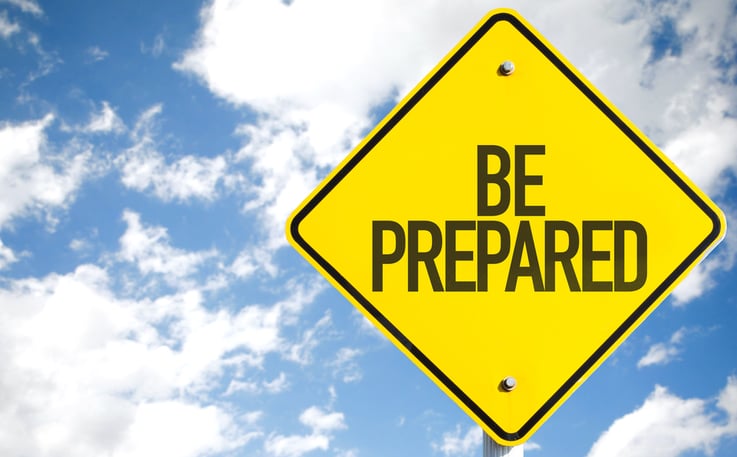
Small business owners often find themselves scrambling to protect years of hard work with limited resources and time. The difference between businesses that survive natural disasters and those that don't often comes down to one thing: preparation. According to FEMA, 40% of small businesses never reopen after a major disaster. Don't become part of that statistic.
Create Your Emergency Response Plan
Every hurricane preparedness strategy starts with a solid emergency response plan. This document should outline exactly what your business will do before, during, and after a hurricane strikes.
Designate Key Personnel: Assign specific roles to your most reliable employees. One person should be responsible for securing the physical location, another for backing up digital data, and someone else for communicating with employees and customers. Having clear responsibilities prevents confusion when time is running short.
Establish Communication Protocols: Create multiple ways to reach your team when normal communication channels fail. Collect personal cell phone numbers, email addresses, and emergency contacts for all employees. Consider setting up a group text or messaging app that works even when internet service is spotty.
Map Out Evacuation Procedures: Know your building's evacuation routes and ensure all employees understand them. If your business is in a flood-prone area or hurricane evacuation zone, establish trigger points for when you'll close operations and send everyone home safely.
Protect Your Physical Assets
Your building, equipment, and inventory represent significant investments that deserve protection from hurricane damage.
Secure the Building Structure: Install storm shutters or have plywood pre-cut to fit your windows. Check that your roof is in good repair—loose shingles or tiles can become dangerous projectiles in high winds.
Move or Secure Equipment: Relocate valuable equipment to higher floors if possible. Heavy machinery that can't be moved should be secured or wrapped in waterproof materials. Consider renting temporary storage space for your most critical assets if your building is particularly vulnerable.
Protect Inventory and Documents: Move inventory away from windows and exterior walls. Store important physical documents in waterproof containers or safety deposit boxes. Take photographs or videos of your inventory and property for insurance purposes before the storm arrives.
Prepare Emergency Supplies
Stock your business with supplies that will help you weather the storm and begin recovery operations quickly.
Essential Emergency Kit Items: Keep flashlights, batteries, first aid supplies, and battery-powered radios on hand. Store at least three days' worth of water and non-perishable food items. Don't forget basic tools like hammers, nails, tarps, and duct tape for quick repairs.
Business-Specific Supplies: Include items specific to your industry—restaurants might need extra propane for generators, while retail stores should have plastic sheeting to protect merchandise. Keep cash on hand since electronic payment systems may not work during power outages.
Generator Considerations: If you decide to invest in a generator, choose one that can power your most essential systems. Have it professionally installed and serviced regularly. Store adequate fuel in approved containers, following all local safety regulations.
Review Your Insurance Coverage
Insurance can make a huge difference between a temporary setback and permanent business closure, but only if you have the right coverage in place.
Understand Your Current Policies: Review your commercial property insurance to understand what's covered and what isn't. Standard policies typically don't include flood damage—you'll need separate flood insurance, which has a 30-day waiting period before it takes effect.
Document Everything: Create a detailed inventory of all business property, including serial numbers and purchase dates. Take photographs of equipment, inventory, and your facility from multiple angles. Store this documentation in a secure, off-site location or cloud storage.
Consider Business Interruption Insurance: This coverage can help replace any lost income if you're forced to close your business temporarily due to hurricane damage. It can cover ongoing expenses like rent and payroll while you're unable to operate normally.
Cash flow challenges often prove more devastating to small businesses than physical damage from hurricanes. Since 2005, Quikstone Capital Solutions has been a trusted advisor to thousands of merchants. Quikstone provides these merchants with easy, fast, and flexible working capital for all their business needs. If you need cash for your business, contact us today. We have only one goal: to help your business succeed.





